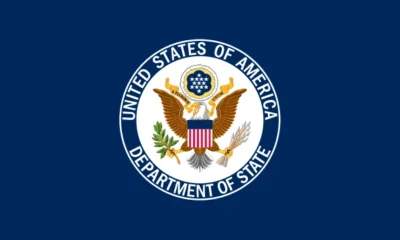Education
How To Withdraw Your College Admission After Being Accepted
If you need to withdraw your college admission, review the school’s policies and inform the school of your decision.

If you need to withdraw your college admission, review the school’s policies and inform the school of your decision. Provide any documentation or information required.
So, you’re facing a tough decision. You’ve been accepted to a college, but now you’re having second thoughts, probably received a better offer, or encountered unforeseen circumstances. Well, it happens to a lot of people actually!
Withdrawing your college admission or uncommitting from college is a big step. Many students face it at some point in their academic journey. However, making the right choice for your future is important, so approach the process with thoughtfulness and clarity. Let’s walk you through the steps to withdraw from a college
Withdrawing or declining an acceptance offer from a college or university involves informing the institution that you previously accepted their admission offer that you’ve changed your mind and no longer plan to attend. It’s not an easy decision, but as earlier said, it’s one that many students face at some point in their academic journey.
Before going into the nitty-gritty details, reflecting on why you’re considering uncommitting from a college is essential. Are there specific reasons that have led you to this decision? You may have realized that the school isn’t the right fit for your academic or personal goals, or you’ve received a more enticing offer from another institution.
Reasons You May Withdraw your College Admission

Additional reasons why someone might want to withdraw your college admission may include:
1. Financial Aid Package
After receiving their financial aid package, students might realize that an offer from another institution is more financially advantageous, with better scholarships, grants, or lower tuition costs.
2. Change in Family Circumstances
Unexpected changes in family circumstances, such as a job loss or relocation, may make it difficult for students to attend their chosen college. Uncommitting could be necessary to accommodate these changes.
3. Health Concerns
Suppose a student develops health issues or has medical conditions requiring specialized care. In that case, they may need to withdraw your college admission that cannot provide the necessary support or accommodations.
4. Personal Safety
A student might feel unsafe or uncomfortable attending a college due to concerns about campus safety, crime rates in the surrounding area, or recent incidents on campus.
5. Academic Reputation
Upon further research or evaluation, a student may discover that the college’s academic reputation is not as strong as they initially believed. Uncommitting could be a way to pursue education at an institution with a better reputation in their field of interest.
6. Lack of Resources
Suppose a college lacks the resources or facilities to support a student’s academic or extracurricular interests. In that case, they may choose to uncommit in favor of an institution that offers more robust resources and opportunities.
7. Financial Constraints
Unexpected financial challenges or changes in your financial situation may make it difficult for you to afford tuition, housing, or other expenses associated with attending college. In such cases, uncommitting may be necessary to avoid excessive debt or financial strain.
8. Cultural Fit
A student may realize that the college’s culture, values, or body demographics do not align with their preferences or identity, prompting them to seek a better fit elsewhere.
9. Faculty or Program Changes
Changes in faculty, leadership, or academic programs at the college may raise concerns about the quality or stability of the educational experience, leading a student to reconsider their commitment.
10. Career Opportunities
A student may receive a job offer, internship opportunity, or acceptance to a specialized program that requires them to be in a different location or attend a different college, prompting them to uncommit from their current institution.
11. Personal Growth
Upon reflection, a student may realize that attending a different college would better facilitate their personal growth, provide new experiences, or allow them to pursue their passions more effectively.
12. Housing or Accommodation Concerns
Housing availability, quality, or suitability issues may arise after committing to a college. If you’re unable to secure suitable housing or accommodations, it could impact your decision to attend the college.
13. Family or Peer Influences
External factors such as pressure from family members, friends, or peers may influence the decision to withdraw your college admission. While it’s essential to consider others’ perspectives, ultimately, the decision should align with your own goals and priorities.
Whatever the case, understanding your motivations will help guide your next steps. Now, let’s look at the process on how to uncommit or withdraw your admission from college.
How To Withdraw Your College Admission

Once you’ve clarified your reasons for wanting to, it’s time to explore your options. Start by researching the policies and procedures of the college or university you’ve been accepted to.
Every institution has its protocol for handling admissions withdrawals, so it’s crucial to familiarize yourself with the steps you’ll need to take.
Reach out to the admissions office of your current college and timely inform them of your decision. Also, be respectful and professional when contacting the admissions office to withdraw your college admission.
Explain your decision clearly and provide any necessary documentation or information they may require. Remember that admissions staff are there to assist you and offer guidance throughout the process.
Note that in some cases, you are likely to forfeit any deposit you’ve made to the college you want to uncommit from.
As you navigate the process of uncommitting from a college, it’s essential to consider the potential consequences of your decision. You may encounter financial implications or limitations on future admissions opportunities depending on the timing and circumstances. This brings us to factors to consider when trying to withdraw your college admission.
Factors to Consider When Trying to Withdraw From a College

Several factors should be considered to ensure a smooth and well-informed process when attempting to uncommit from a college. Here are some key factors to consider:
a. Deadline and Protocol
Understand the college’s policies and deadlines for withdrawing acceptance offers. Each institution may have specific procedures that must be followed, including notification deadlines and any required documentation.
b. Financial Implications
Consider any financial commitments or deposits you’ve made to the college and how uncommitting may affect these arrangements. Determine if there are any monetary penalties or consequences for withdrawing your acceptance.
c. Alternative Options
Explore alternative options, such as attending another college, taking a gap year, or pursuing alternative pathways like community college or vocational training programs. Evaluate these options carefully to determine the best fit for your academic and personal goals.
d. Communication
Communicate your decision to uncommit from the college clearly and professionally. Inform the admissions office or designated personnel of your decision and follow any specific procedures outlined by the institution.
e. Future Implications
Consider how uncommitting from college may impact your future academic and career opportunities. Be prepared to explain your decision in future college applications or interviews and consider any potential ramifications for your academic record or reputation.
f. Support Network
As you decide, seek support from trusted mentors, counselors, or family members. Discuss why you want to uncommit and seek guidance on the best course of action.
g. Legal Considerations
Legal considerations are critical when attempting to withdraw your college admission. While the decision to withdraw acceptance may seem straightforward, there could be legal implications or contractual obligations that you need to navigate.
Seeking legal counsel can provide valuable guidance and ensure you approach the situation with clarity and understanding.
Alex, a friend of mine, had accepted an offer of admission to a prestigious university but later received an enticing scholarship offer for her dream course from another institution. Excited about the opportunity to save on tuition costs, Alex decided to withdraw acceptance from the first college and accept the scholarship.
However, upon reviewing Alex’s enrollment agreement with the first college, it was discovered that it contained clauses regarding binding enrollment and withdrawal policies. Concerned about the potential legal consequences of breaking the agreement, Alex sought advice from a legal expert.
With the guidance of legal counsel, Alex learned that while enrollment agreements are typically binding, provisions often allow for withdrawal under certain circumstances, such as financial hardship or extenuating personal reasons. The attorney helped Alex understand her rights and obligations under the agreement and guided her on how to proceed.
After careful consideration, Alex submitted a formal request for withdrawal from the college, citing the scholarship offer and financial concerns as reasons for her decision. With the support of legal counsel, Alex carried out the process smoothly and without facing any legal repercussions.
With Alex’s experience, you are sure to understand the importance of considering legal considerations when withdrawing from college.
Enrollment agreements are legally binding contracts, and it’s essential to understand the terms and any potential consequences of breaking them.
Consulting legal counsel can provide the guidance and support you need to navigate the process effectively and protect your rights.
Be sure to weigh these factors carefully and seek advice from trusted mentors or counselors if needed. While uncommitting from a college can feel daunting, it’s also an opportunity to reassess your academic and personal goals.
Take this time to explore alternative options and consider what truly matters to you. Whether pursuing a different academic program, taking a gap year, or exploring non-traditional paths, remember there are many ways to define success.
Final Thoughts
The decision to withdraw your college admission should not be taken lightly. It requires careful consideration, clear communication, and a willingness to explore alternative paths.
You can make the best decision for your future by approaching the process with thoughtfulness and clarity. Remember, you’re not alone in this journey; resources and support are available to help you every step of the way. Thanks for reading!
























You must be logged in to post a comment Login